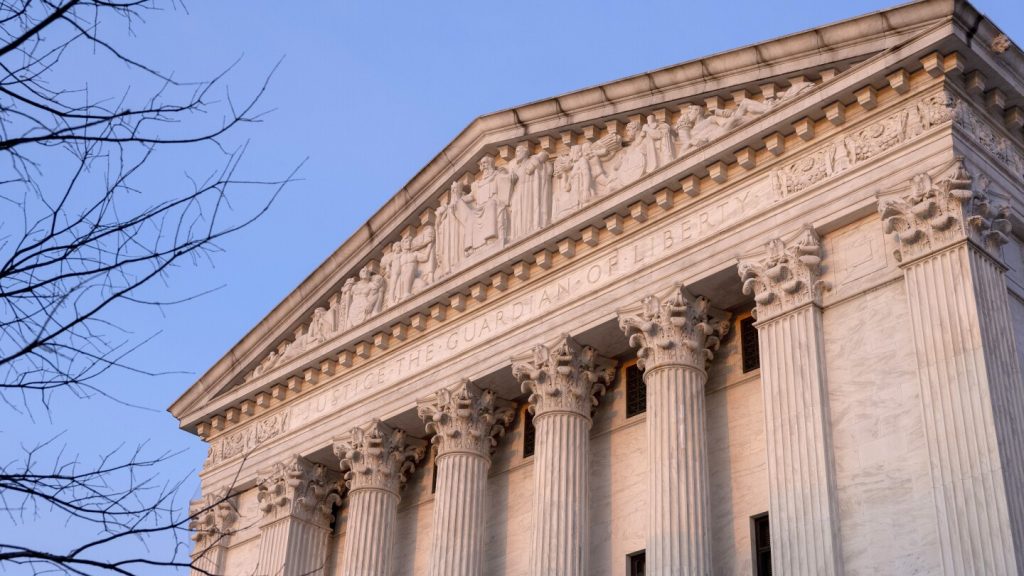The Supreme Court allowed a lawsuit to proceed against Black Lives Matter activist DeRay Mckesson, who led a protest in Louisiana in 2016 resulting in a police officer being injured. Civil rights groups and free speech advocates raised concerns about the implications for the right to protest. The court’s decision to reject Mckesson’s appeal was met with mixed reactions, with Justice Sonia Sotomayor stating that lower courts should not read too much into the denial. The case revolves around a protest in Baton Rouge where an officer was injured by a “rock-like” object thrown by an unidentified protester, leading the officer to sue Mckesson as the protest organizer.
Initially, a federal judge dismissed the lawsuit in 2017, but the 5th U.S. Circuit Court of Appeals ruled that the officer could argue that Mckesson failed to exercise reasonable care in leading protesters onto a highway, resulting in the confrontation where the officer was injured. Despite dissent from Judge Don Willett, who argued that the officer should sue the actual rock-thrower, the court’s decision has raised concerns about the potential impact on the right to protest. The American Civil Liberties Union, representing Mckesson, warned that allowing the suit to proceed could discourage individuals from exercising their right to protest, as they could be held personally liable for the actions of third parties.
The lawsuit against Mckesson highlights the broader issue of balancing the right to protest with accountability for potential harm caused during protests. While the court’s decision allows the officer to pursue legal action against Mckesson, it has sparked debate over whether protest leaders should be held responsible for the actions of individual participants. The officer’s lawyers argued that Mckesson did not take steps to prevent the violence that occurred during the protest, which illegally blocked a highway. This case has raised questions about the responsibilities of protest organizers and the potential implications for free speech and civil liberties.
The Supreme Court’s decision not to hear Mckesson’s appeal has raised concerns about the chilling effect it could have on future protests and activism. By allowing the lawsuit to proceed, there is a fear that individuals may hesitate to participate in protests out of fear of legal repercussions for the actions of others. The ruling could set a precedent that holds protest organizers accountable for the behavior of individual participants, potentially limiting the ability to organize and participate in demonstrations. This case underscores the complex and often contentious relationship between the right to protest and the legal implications of organizing public demonstrations.
As the case moves forward, it will be important to consider the broader implications for the right to protest and freedom of speech. The decision to allow the lawsuit against Mckesson to proceed raises questions about the boundaries of accountability for protest leaders and the potential impact on civil liberties. Civil rights groups, free speech advocates, and legal experts will continue to monitor the case and its outcome, as it could have far-reaching effects on the ability to organize and participate in peaceful protests. The debate over balancing the right to protest with accountability for potential harm caused during demonstrations is likely to continue as the legal proceedings unfold.


